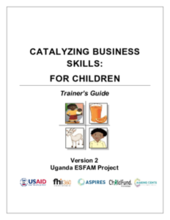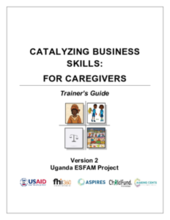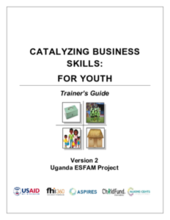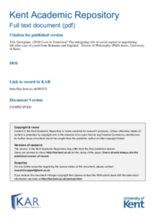Displaying 631 - 640 of 991
This study examined the extent to which professional foster families fulfil their tasks to reintegrate families, what attitudes professional foster families assume towards the idea of reintegration, and to what extent and how professional foster families support a child separated from his or her family and parents in the process of reintegration.
This is the report of the 3rd Biennial International Conference (3rd BICON) on “Evolving Trends in Alternative Care for Children in South Asia” that was convened by Udayan Care on March 16 & 17, 2018 at Amity University, Noida NCR (India).
Making Cents International (Making Cents), in partnership with ChildFund International, developed the Catalyzing Business Skills curriculum for the Economic Strengthening to Keep and Reintegrate Children into Families (ESFAM) project in Uganda. This Trainer’s Guide is intended to be used with children participating in savings groups who are interested in engaging in successful income generation activities.
This curriculum aims to build the financial literacy and business knowledge, skills, and attitudes necessary for adult members of Economic Strengthening to Keep and Reintegrate Children into Families (ESFAM) savings groups to successfully generate income.
El presente artículo busca describir brevemente las trayectorias de los adolescentes y jóvenes en su transición del sistema de cuidados alternativos a la vida adulta en América Latina.
Making Cents International (Making Cents), in partnership with ChildFund International, developed the Catalyzing Business Skills curriculum for the Economic Strengthening to Keep and Reintegrate Children into Families (ESFAM) project in Uganda. This Trainer’s Guide is intended to be used with youth participating in savings groups who are interested in engaging in successful income generation activities.
This study is an outcome evaluation of Bay Area Youth Center's Real Alternatives for Adolescents (RAFA) transitional housing program in Hayward, California.
This study examined care leavers' own safety net and how they negotiate independent living, aimed at understanding strategies used to negotiate independent living through the lenses of social capital and social networks.
This study assesses psychological well-being, risk, and resilience of youth currently in-care and former foster youth and how preparation for independent living affects these factors.
This study examines a program (iHeLP) for substance use reduction in foster youth aging out of care.





